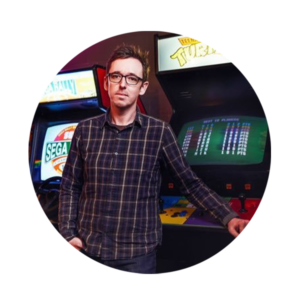The Oxford and Reading ACAMH Branch proudly present ‘Enhancing young people’s mental wellbeing through digital technology’.
Now more than ever we need to be considering the impact of digital media on the mental health of young people, both positive and negative, and how we can support them. We will discuss the key challenges faced in relation to child and adolescent mental health in the fast-paced digital environment.
Quick links about the event
About the day
Who should attend
Key takeaways
Prices and booking
Programme
About the speakers
About the day
Even before ‘lockdown’ many professionals and parents have expressed concern and uncertainty about the impact of technology on young people’s mental health. The day will start with research-based talks outlining what we know about both positive and negative impacts of ‘screen time’ in daily life. There is also an increasing emphasis on the need to develop and use technology in mental health interventions, with clinicians and educators expressing uncertainly about best practice. The second half of the morning will capitalise on developments in the last few years and showcase examples of technology and the way it can be used in clinical practice.
Who should attend
This day would be beneficial to a broad audience, including but not restricted to; educational psychologists, teachers, psychologists, psychiatrists, researchers, occupational and speech therapists, social workers, and those that work with children affected with mental health issues.
Key Takeaways
- To be aware of potential impact (both positive and negative) of ‘screen time’ eg gaming and social media for children and young people
- To have a better understanding of the way technology might be used in clinical practice
- Opportunity to develop own practice through learning from other’s experience
Programme
09.30 Dr. Amy Orben – How digital technologies affect adolescent psychological well-being and mental health
10.15 Dr. Ann Oszivadjian and Andy Clarke – ‘Molehill Mountain App’, an app for autistic people to manage anxiety
11:00 Short break for you to get a tea/coffee
11.20 Professor Pete Etchells – Is gaming bad for children and adolescent’s mental health?
11.50 Mary Jane Stroud – Support Hope and Recovery Online Network (SHaRON)
12.30 Close
About the speakers

Amy’s research uses large-scale data to examine how digital technologies affect adolescent psychological well-being and mental health. She uses innovative and rigorous statistical methodology to shed new light on pressing questions debated in policy, parenting and mental health. She also campaigns for better communication of trends in data and the wider adoption of Open Science. Amy is a College Research Fellow at Emmanuel College, University of Cambridge, and a Research Fellow at the MRC Cognition and Brain Sciences Unit, University of Cambridge. She completed an MA in Natural Sciences at the University of Cambridge before joining the University of Oxford to obtain her DPhil in Experimental Psychology, for which she was award the BPS Award for Outstanding Doctoral Research 2019 and the Understanding Society Young Researcher Prize 2019. During her time at Oxford she was also nominated for the ‘Best Tutor’ award at the Oxford Student Union’s Annual Teaching Awards.

Dr. Ann Ozsivadjian is an Independent Practitioner and Honorary Researcher at Kings College London. She is a leading expert in the assessment and treatment of mental health difficulties in ASD, in understanding cognitive pathways to anxiety in ASD, and also working with girls and women on the autism spectrum.

I’m a professor of psychology and science communication at Bath Spa University. My research looks at the behavioural effects of playing video games. I write regularly for the the Cosmic Shambles Network, and previously was the Guardian’s science blog network coordinator. My psychology blog Head Quarters was shortlisted for the Association of British Science Writers UK science blog award three times. I’ve previously written for the Observer, Telegraph, WIRED, Discover magazine’s science blog, the Nature Network, the British Psychological Society’s Research Digest, and Scientific American’s blog network, and I’ve been a science consultant for BBC’s Horizon.

